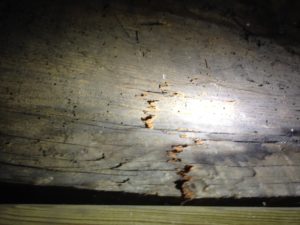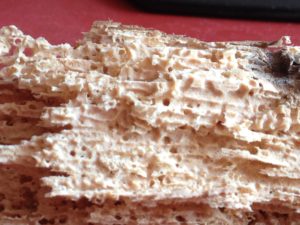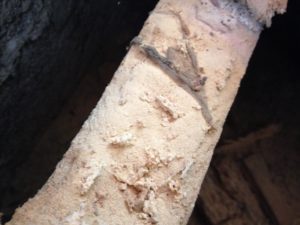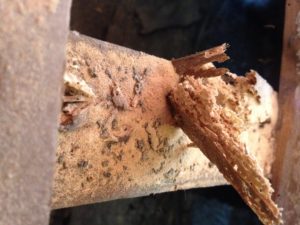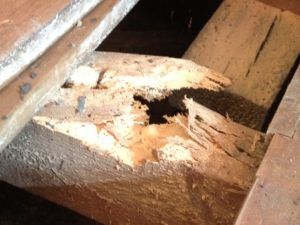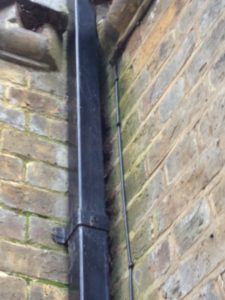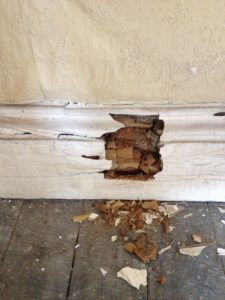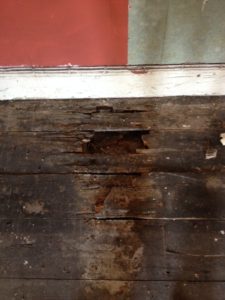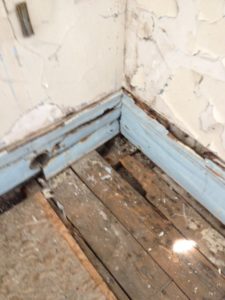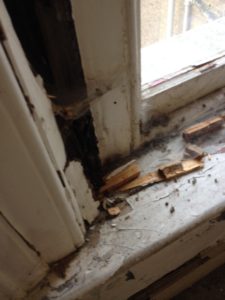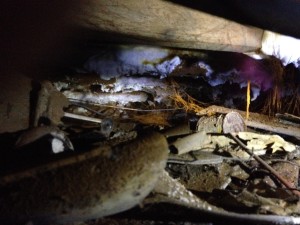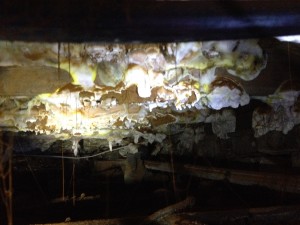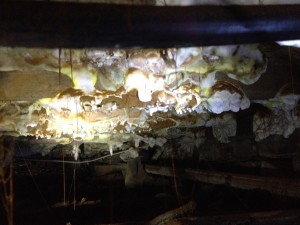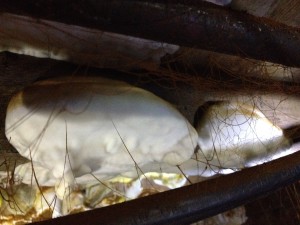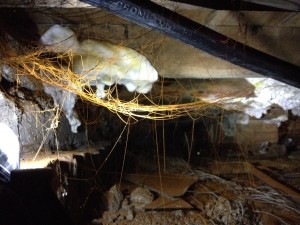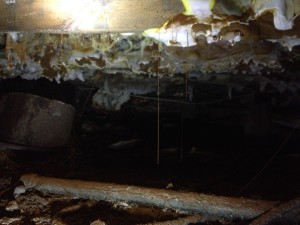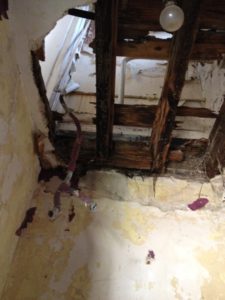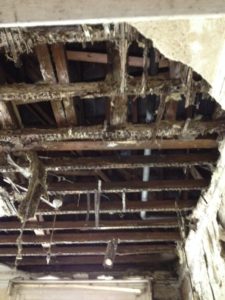My kit
Over the last 36 years that I have been surveying timber framed buildings and timber structures I have accumulated a large number of trusty specialist testing and surveying tools .
I have also collected a set tools for making necessary access ( drills and board lifting equipment, ) within the constraints of any pre-described listing restrictions
Remote self powered lighting and photographic/ video recording equipment is also on occasion an essential documenting tool, particularly when inspecting voids and concealed places.
To minimise damage, an endoscope can be introduced into a carefully cut access hole to assess rot damage beneath flooring or behind panels
The need to travel extensively has meant prioritising my kit to being job specific, selecting from my available inventory of equipment what l consider essential to carry out an appropriate, self supporting survey in the specified building whilst conforming to the best health and safety standards.
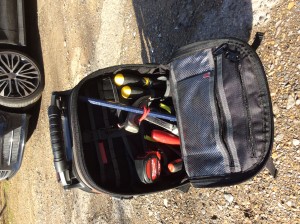
At every stage of a survey, health and safety are my priority, .
Before attending site
I will always have tried to read available reports and investigations by surveyors and engineers already obtained about the site as these are a vital source of health and safety information.
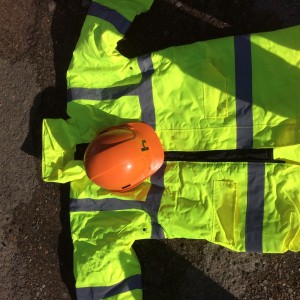
Day glow and hard hat
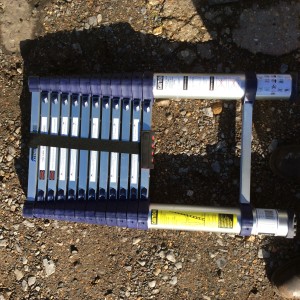
Telescopic ladder
For low level access and investigation work only
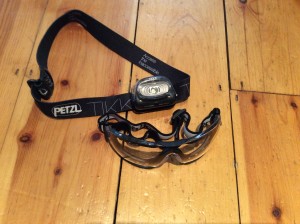
Head lamp and Eye protection ESSENTIAL
Special hazards may require special personal protective equipment (P.P.E.) in addition to the standard P.P.E. Equipment.
BE AWARE THAT CHEMICAL / ANIMAL CONTAMINATION may make the site unsafe until specialist DECONTAMINATION has taken place. A CLEAN AIR CERTIFICATE SHOULD BE AVAILABLE from the general contractor following the cleaning / decontamination process
As far as practicable I would make a risk assessment before site attendance or devise a health and safety plan in partnership with my health and safety consultant Mike kelly of Sirius safety (see below) to deal with the identified hazards.
Other persistent hazards may require that there are two people at all times on site during the survey.
I would also consider it essential to check for hazardous materials and unsafe structure information and notices related to the site.
In a later blog I will be showing you how dangerous an old house can ( see posting ” the one that got away “)
If you are undertaking this type of work serious injury and death awaits the casual or the unprepared. Care and extreme caution should be exercised at all times.
Finally , to inspect exposed internal / external roof frame members or high level structures I would insist the main contractor provide an on a certified scaffold tower and a labourer responsible for the towers safe movement.
if I attended a construction site and it appeared poorly run or a dangerous place to conduct a survey I would not work there.
If I saw any illegal or dangerous practices I would report this to the health and safety executive . This is a legal requirements and the moral responsibility to my fellow workers
I have a great relationship with a company called Serius Safety who help me with all my health and safety information risk assessment/ method statements ( RA/MS ) .
mike.kelly@seriussafety.co.uk.
Personal Protection Equipment in my surveying back pack
Hard hat ( in test )
Kevlar gloves
Safety glasses (x2)
Day glow fleece ,waist coat or jacket ( weather dependant)
Heavy work trousers (carhartt) and jacket ( carhartt) to protect against sharp edges
Heavy boots ( must be nail proof)
Head lamps (minimum x2 ) must have flashing function for emergency location
Mobile phone
Glow sticks ( x3)
Bottle of water ( 0.5ltr available at all times in back pack for eye irrigation )
pressure bandage
I would not carry out an isolated survey without all of the above as a MINIMUM.
I would also have prearranged phone calls to my office to keep them informed of my progress. If I fail to call, they call me. If they can’t get a response for an hour my colleagues would attend site before informing the emergency services .

